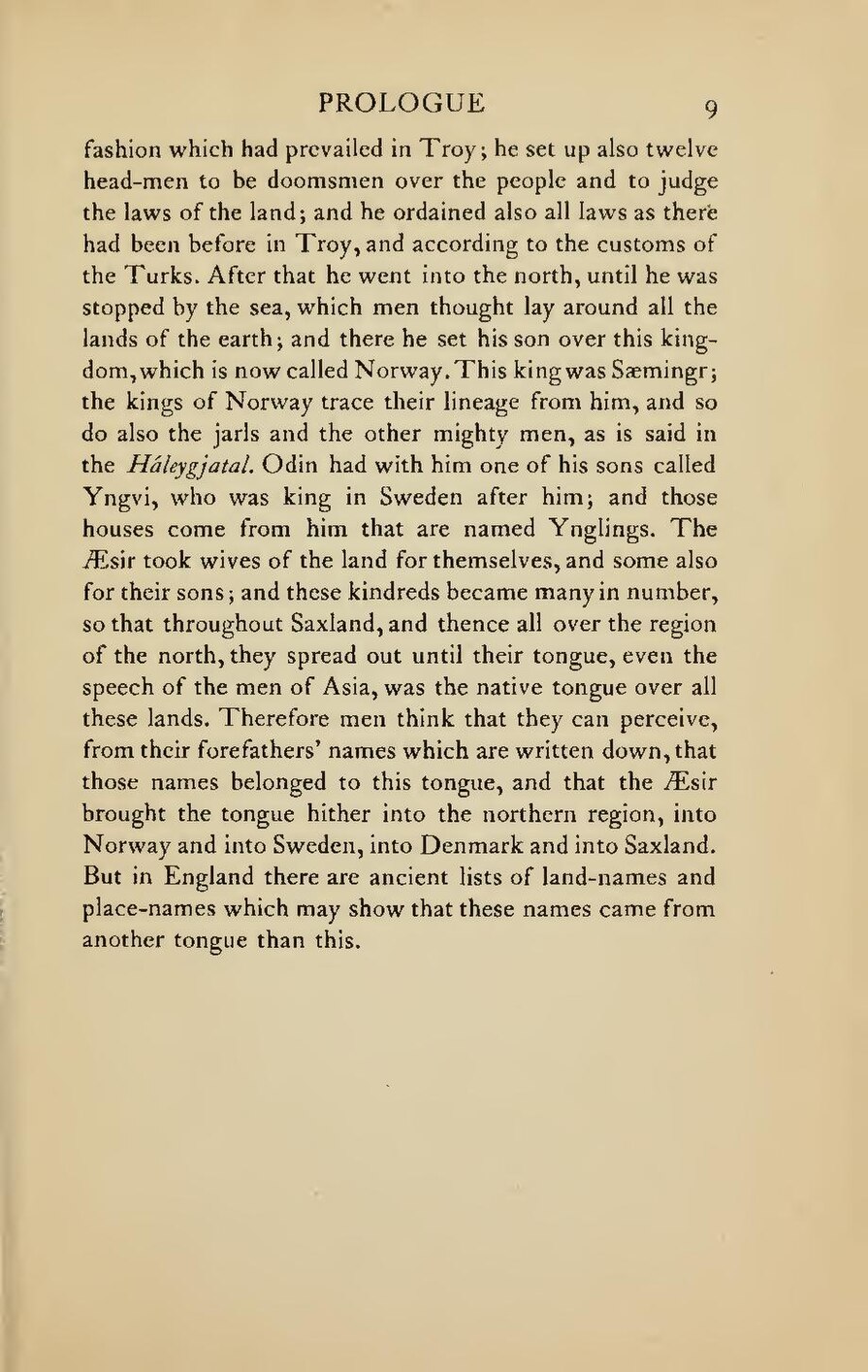fashion which had prevailed in Troy; he set up also twelve head-men to be doomsmen over the people and to judge the laws of the land; and he ordained also all laws as, there had been before, in Troy, and according to the customs of the Turks. After that he went into the north, until he was stopped by the sea, which men thought lay around all the lands of the earth; and there he set his son over this kingdom, which is now called Norway. This king was Sæmingr; the kings of Norway trace their lineage from him, and so do also the jarls and the other mighty men, as is said in the Háleygjatal. Odin had with him one of his sons called Yngvi, who was king in Sweden after him; and those houses come from him that are named Ynglings. The Æsir took wives of the land for themselves, and some also for their sons; and these kindreds became many in number, so that throughout Saxland, and thence all over the region of the north, they spread out until their tongue, even the speech of the men of Asia, was the native tongue over all these lands. Therefore men think that they can perceive, from their forefathers' names which are written down, that those names belonged to this tongue, and that the Æsir brought the tongue hither into the northern region, into Norway and into Sweden, into Denmark and into Saxland. But in England there are ancient lists of land-names and place-names which may show that these names came from another tongue than this.
Page:The Prose Edda (1916 translation by Arthur Gilchrist Brodeur).pdf/41
PROLOGUE
9
